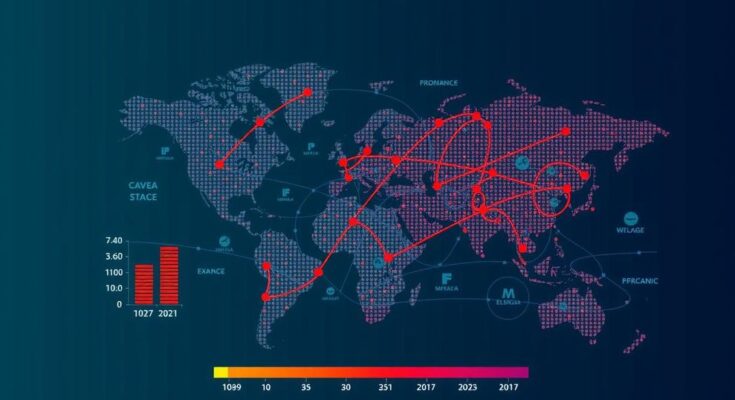The discussion at the London Business School focused on the potential economic implications of Donald Trump’s return to the presidency in 2025, particularly concerning tariffs, immigration policies, and the effects on green investments and inflation. Experts highlighted the challenges and uncertainties posed by his proposed policies, as well as the opportunities that may arise as the new administration clarifies its agenda.
The prospect of Donald Trump’s return to the White House in January 2025 has amplified the prevailing uncertainties surrounding the global economy. During a recent discussion at the London Business School Think Ahead event, experts examined the potential implications of Trump’s second presidency on economic dynamics within the United States and globally. Given that the specific policies and personnel of the new administration are still forthcoming, a broad examination was conducted based on previous actions of the Trump administration.
A key focus of the discourse centered on Trump’s proposed tariffs, which could impose across-the-board tariffs reaching up to 20 percent on all imports, with even steeper tariffs on countries like China and Mexico. Such tariffs are likely to create rippling effects throughout the global economy, potentially lowering GDP growth by an estimated 0.8 percentage points. Drawing from historical precedents, it was suggested that Trump’s tariff proposals may serve more as negotiation tactics rather than definitive measures, reminiscent of his first presidency.
The historical response from countries like China, characterized by a combination of retaliatory tariffs and strategic trade agreements, raises further uncertainties about the global economic outlook. Immigration policy was another significant topic discussed; Trump’s intention to deport undocumented migrants presents challenges as it would impact labor supply across various sectors.
Moreover, the Republican majority in Congress poses risks to the progressive energy initiatives previously endorsed by the Biden administration, particularly concerning the Inflation Reduction Act. The rollback of such policies may stifle green innovation, with repercussions for global technology aimed at addressing climate change. Discussion also included the implications of fiscal policies on inflation and interest rates, particularly the extension of 2017 tax cuts, which could exacerbate budget deficits and inflationary pressures.
The panel indicated that the Federal Reserve may opt for a cautious approach in responding to these fiscal policies, with potential delays in monetary easing due to inflation concerns. Attention was also directed to emerging trends concerning digital currencies and financial market deregulation, underscoring the need for continued analysis as the new administration approaches.
In summary, the consensus among panelists suggested that 2025 is poised to be a year of significant uncertainty and volatility for the global economy, while also highlighting that opportunities may emerge as new policies become clearer in the coming year.
As the world anticipates Donald Trump’s possible return to the presidency in January 2025, significant economic uncertainties loom on the horizon. Trump’s first term introduced unconventional trade policies, particularly regarding tariffs and immigration, which had profound implications for both domestic and global economies. With the potential reintroduction of similar policies, economists are closely examining the prospective outcomes, especially in the realms of trade, labor, and fiscal matters. Furthermore, the potential political landscape, including a Republican-controlled Congress, could further shift economic policies, particularly impacting the green energy sector.
The panel at the London Business School concluded that the year 2025 will bring pronounced uncertainty and volatility in the global economic landscape due to the anticipated policies of a second Trump administration. Nonetheless, the clarity of emerging opportunities will likely become more evident as the administration establishes its course in the new year. Stakeholders worldwide are advised to monitor these developments closely, as they may significantly shape the future of international economic relations.
Original Source: www.forbes.com




